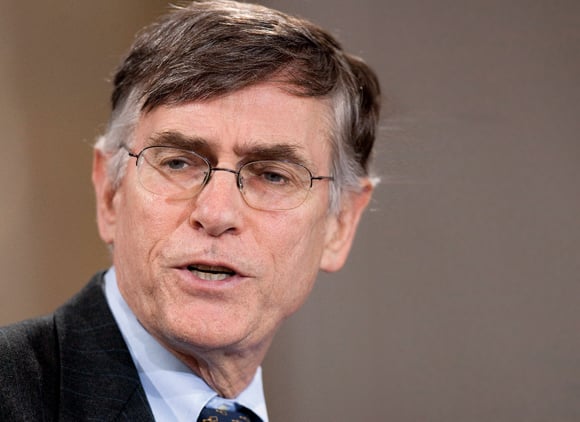Meanwhile, regulatory fees were up by 10.5% in 2010; overall, regulator posted $55M net profit
Salaries for Financial Industry Regulatory Authority Inc. executives are holding steady. Regulatory fees for B-Ds, on the other hand, are not.
Based on pay data in Finra's 2010 annual report, posted on the regulator's website yesterday, the 10 most highly paid executives are being paid about the same this year as last year. Incentive awards, which make up about half of Finra executive's pay, also are running flat.
Finra executives received incentive awards in February, based on last year's performance. The regulator includes the amounts as 2011 compensation.
Chief executive Richard Ketchum is being paid $1 million per year in salary — the same amount he was paid last year. In February, he received $1.2 million in incentive pay, based on last year's results.
The $2.2 million in salary and incentive pay that Mr. Ketchum will earn this year is down slightly from last year, when he got $2.25 million. Including additional amounts for retirement and employee benefits, Mr. Ketchum received $2.6 million last year.
That figure, as well as pay data for other executives, has been revised from the 2009 annual report.
Finra has not yet calculated the value of retirement and employee benefits for this year.
Last year, eight of the top 10 executives at Finra earned more than $1 million in total compensation, including retirement and benefits.
Meanwhile, Finra has some financial challenges this year, Mr. Ketchum said in the report.
"Regulatory fees for 2011 — especially those driven by share volumes — continue to decline, along with a softening of other revenue sources," he wrote. "At the same time, we continue to face expanding regulatory responsibilities and related costs."
Mr. Ketchum added that Finra will "look for ways to stabilize declining revenues and maximize cost efficiencies to balance our cash flows."
Finra spokesman Nancy Condon declined to comment further.
While regulatory fees are declining this year, they were up 10.5% in 2010, to $428.6 million. The bump-up was due to an increase last year in the fees Finra charges member firms. But regulatory fees remain below 2008 levels.
Overall in 2010, Finra posted net income of $54.6 million, due primarily to earnings and gains on its investment portfolio, which is typical.
The regulator brought in $850 million in total revenue and had $941 million in expenses, according to the financial report. After suffering investment losses of $624 million in 2008, Finra restructured its investment portfolio to reduce risk.
As of Dec. 31, two-thirds of its portfolio was in bonds and cash, 22% in stocks, and 7% in alternatives.







